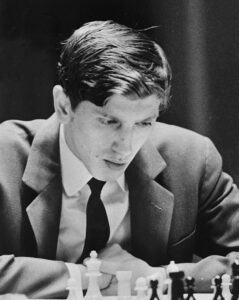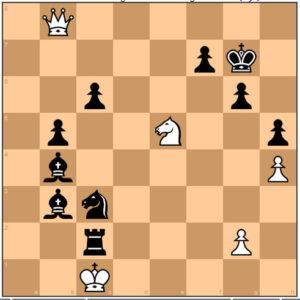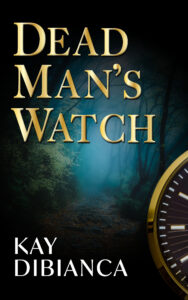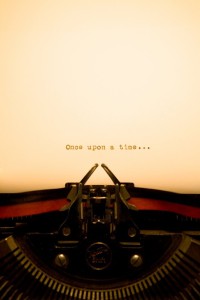Writing is easy for me. I don’t mope around the house, struggling with a story, and have never accepted the concept of writer’s block. The question of what to write about has never entered my mind. There are a million things to include in a manuscript, and I spend more thinking time on what not to add.
For me, writing is fun, and the creative process is always fresh and exciting. In my experience, it’s as simple as putting the characters on a mental stage, then sit back to watch a river of words flow onto the page…er…screen. I don’t outline or pre-plan what will happen. My characters take care of that, and far be it for me to interfere in their (usually) chaos-filled lives.
I hear a lot about building characters. Some folks spend days or even weeks developing a written backstory for each fictional person they create. It’s how they write, and there’s no way I’m gonna say this method is right or wrong. If that’s the way it works for you, more power to you. Writers write, and they create in their own way.
However, my characters appear as the story progresses. Some might begin as secondary characters who help move the story along. Others are around for a single chapter, to help establish a scene, or to prod a reaction from the protagonist or antagonist, and they often are there to simply add spice and provide comic relief.
They are young, old, strong, weak, craggy, funny, lanky, portly, and always with distinctive voices. Many are part of an ensemble cast that grew over the years as the Red River and Sonny Hawke books matured.
But who are they, these fictions that I construct without conscious thought or planning?
One is Retired Texas Ranger Tom Bell, old, grizzled, tough as a bootheel.
He developed over the course of a few days. Building Tom Bell (I always refer to him by both names) was like snapping mental Lego blocks together one piece at a time until he matured on the page. He’s partly a real deputy I once knew, partly drawn from life, and wholly cobbled together from actors I’ve seen in a hundred movies.
My daughters insist Tom Bell is my alter ego. Honestly, I hope I’m as spry as he when I reach his advanced age.
Early on, many of my characters were loosely based on people I’ve known, such as The Hunting Club membership. I used several old hunting and fishing buddies as the basis of my 33-near-old newspaper column giving them nicknames at the outset, and stretching the truth about our adventures. But as the months, then years (good lord, then decades) went by, those characters took on a life of their own, and are now so far removed from the boys that only friends and family can tell the differences in the two entities.
By the way. A word of caution belongs here. I once wrote a column about the time when Hunting Club members and I went to the Texas panhandle for pheasant season. On the way, we discussed a thousand things, including an acquaintance who often told his wife he was hunting with his friends, only to spend time with a girlfriend.. We made a lot of cracks about it, and the next weekend I wove those stories and observations into a completely fictional character. The Membership’s wives read the column and immediately cornered the boys in order to find out exactly who I was talking about. They soon cornered me and explained that if I ever wrote anything so close to home again, I’d walk like John Wayne for the rest of my life.
In the Red River series, Neal Box, Floyd Cass, Oak Peterson, and Deputy John Washington were all based on real people who have since passed away, but I changed their names. It was enough in those situations, because I molded the resulting characters to fit the storyline.
But human nature requires readers to look for familiarity in an author’s characters, and though most of the time they’re completely made up, folks often think they recognize themselves or someone else.
Our house phone rang one night about eight or nine years ago and my elderly Aunt Millie (not her real name) was on the other end of the line. She’d been in an assisted living facility for years, and I was remiss in visiting her. I thought that’s what the call was about when I saw her name on the caller ID, but cousin, was I wrong.
“Hello Aunt Millie!”
“Reavis Zane, I got a bone to pick with you.”
Sigh. When the old folks who once changed your diapers use both names, you done messed up in some way.
“I know. I’m sorry I haven’t been by. How’re you doing?”
“I’m fine.” Those two words were short, clipped. “That’s not why I’m calling.”
I flipped through a rack of mental files, trying to identify some other transgression, but came up blank. Another sigh. It’s what you do when there’s a whoopin’ coming and all you can do is take it. “Well, go to pickin’. What’d I do?”
She straightened me out right quick. “You’re telling family secrets in them books you’re a-writin’.”
Maybe. In those early years, lot of what I used as the framework in the books happened in some way to myself or others, and were based loosely on tales spun by the old folks. I draped those recollections as best I could to conceal what was real, but a lot was made up from whole cloth.
In this instance, I had no idea what she was talking about. “Which secrets are those?”
“Why, you know what I’m talkin’ about.”
It was the classic Older Adult Strategy used on me by parents, teachers, and at least one high school principal. Pile on the guilt and wait for a confession. I knew better. I’d survived my larval years by either begging forgiveness, or feigning complete innocence.
Volley back into her court. “No ma’am. I don’t know what you mean. Tell me so I can remember.”
“You wrote in this last book about Maxine and T.J. getting together and runnin’ off with one another.”
Growing up, I must have heard a dozen stories about marital infidelity when the old folks forgot us kids were listening to their conversations and drifted off into juicy details. But in this instance, I made up the couple who left their spouses and started a new life.
“Really. Aunt Maxine and Uncle T.J. did that?”
“That’s right.” I heard ice tinkle in a glass and figured she was drinking iced tea, or had gone to hard liquor (where she was driving me). “I just read that part in your book where a couple run off together. You’re talking about kinfolk. You cain’t go opening doors like that. Family skeletons need to stay where they are.”
“Hummm…so Maxine and T.J. ran off together?”
A low gasp. “You didn’t know?”
“No ma’am.”
“Well, I’m not gonna talk about that!”
And she hung up.
After a little digging, I learned what happened way back in the early 1960s, but I swear to you all, they weren’t in mind when I made up those people.
So here’s a little advice. Basing characters on long dead historical figures is a common occurrence for writers. Amy Cook, Writer’s Digest legal analyst, says: “You can write about historical people because the two main legal areas you need to worry about when writing about real people—defamation of character and invasion of privacy—only apply to living people. The deceased’s heirs cannot sue under those causes of action either.”
Using living people can be legally hazardous. Apply a little common sense and don’t be defamatory if someone is still sucking air and kicking. But I dassent go any deeper into this rabbit hole right now. There are dozens of detailed and well-researched articles online about using real people.
Be careful of your own family, too. They might have a crow to pick with you.

 Congratulations! Big shot producer turned your writing life into a game show.
Congratulations! Big shot producer turned your writing life into a game show.








 You just landed a starring role in the remake of one of your favorite movies.
You just landed a starring role in the remake of one of your favorite movies. 



